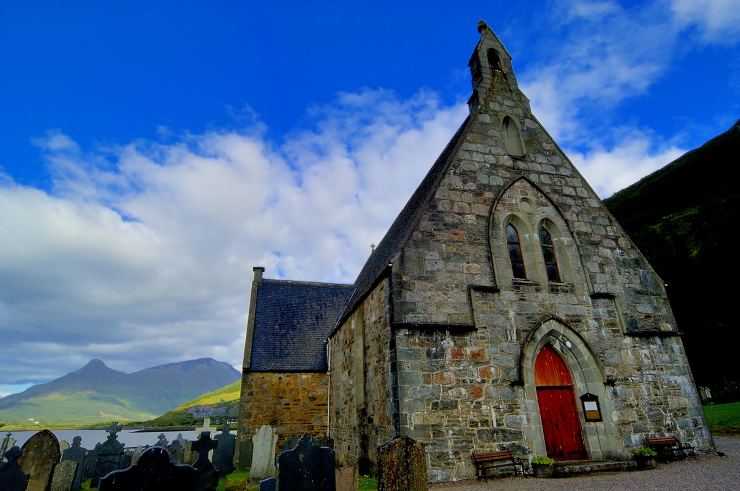
The Church of Scotland has lost more than half of its members since the year 2000, with the average age of worship attendees being 62, according to a recently released report.
The Assembly Trustees report, created in advance of the Church’s General Assembly, which is scheduled to go from May 20-25 in Edinburgh, analyzed the statistical information about the denomination.
According to the report, the membership of the Church in 2021 was 283,600, which represented a 4.6% decline compared to 2020, and well below the 1.3 million reported in the 1950s.
The report explained that the 2021 membership numbers represented 46.6% of what was reported in 2000, while the number of ministers reported last year was 60% of what it was in 2000.
“This is no fault of one group of people or any decision-making body, but a trend that has not been reversed; we have lost members and Ministers of Word and Sacrament but not adjusted the number of charges,” stated the report.
“One in three charges are in vacancy whilst across Scotland the size of almost every congregation is shrinking. Ministers are retiring and people are not coming forward (as has been the case for years) in the numbers needed to replace them. The good news of Jesus Christ, whilst being shared amongst some is not reaching the majority of the people of Scotland.”
The report also found that the “vast majority” of the Church’s ministers are over the age of 50, speculating that as many as half of them will retire within the next decade.
Church attendance stood at around 60,000 in 2021, which is below the approximately 88,000 reported before the COVID-19 pandemic forced many churches worldwide to suspend in-person worship services. The report noted that around “45,000 people now worship online and 8,275 in ‘other ways.’”
“The average age of those attending church is 62 years old — so the trends of decline are not likely to change without us taking positive action and addressing the demographic profile,” the report added.
“We have well over 1,000 church buildings to cater for this number of people which is simply untenable and unsustainable.”
A supplementary report by the Trustees documented that, as of December 2022, the Church of Scotland had 270,300 members, a 4.7% decline from 2021, and representing an overall decline of 35% since 2012.
The supplementary report did note an increase in both baptisms and professions of faith in 2022. However, it stressed that the level still remained below pre-COVID-19 pandemic levels.
Additionally, according to the supplementary report, giving has been gradually decreasing since 2019, after years of being largely stable despite the considerable decline in membership: “In 2019, congregational income was £87 million ($107 million); for 2022, it is estimated as £73.4 million ($91 million), and by 2024 projected to be £68.7 million ($85 million). The impact of this on the congregations themselves is apparent with only 30% having enough income to cover their basic local costs.”
In remarks given to the General Assembly on Monday, the Rev. David Cameron said that the report on membership decline “provides a realistic picture of where our Church finds itself.”
“This is a critical time as we make the essential changes needed to lay a sustainable foundation for the future,” he continued. “The reforms we embark on together are to reconfigure and reshape the church for mission and service around fewer buildings and fewer charges.”
Cameron went on to assert that Church members needed to be “enthusiastic about doing things differently” and “dreaming bold dreams and having the energy and encouragement to experiment and learn in the process.”
“Imagine being able to move forward in positive ways tackling serious issues of the day, responding to the real need in Scotland,” Cameron said. “Imagine finding a creative way of getting different people with different views together to create a different future.”
“Sharing ministry for the pastoral care of the elderly in the aging congregations whilst recognizing the need to be intergenerational, fully integrating our young people, shaping the life of the Church.”
The Church of Scotland is theologically Presbyterian and has been the national church of the United Kingdom country since 1690, with its status guaranteed under the 1707 Act of Union of Scotland and England.
Although the denomination is the official national church of Scotland, it is not controlled by the U.K. government nor by the Scottish Parliament.
“The King is not the supreme governor of the Church of Scotland, as he is in the Church of England. The sovereign has the right to attend the General Assembly, but not to take part in its deliberations,” explained the denomination.
“The Church of Scotland (the Kirk) is not State controlled, and neither the Scottish nor the Westminster Parliaments are involved in Kirk appointments.”
Courtesy of The Christian Post.




